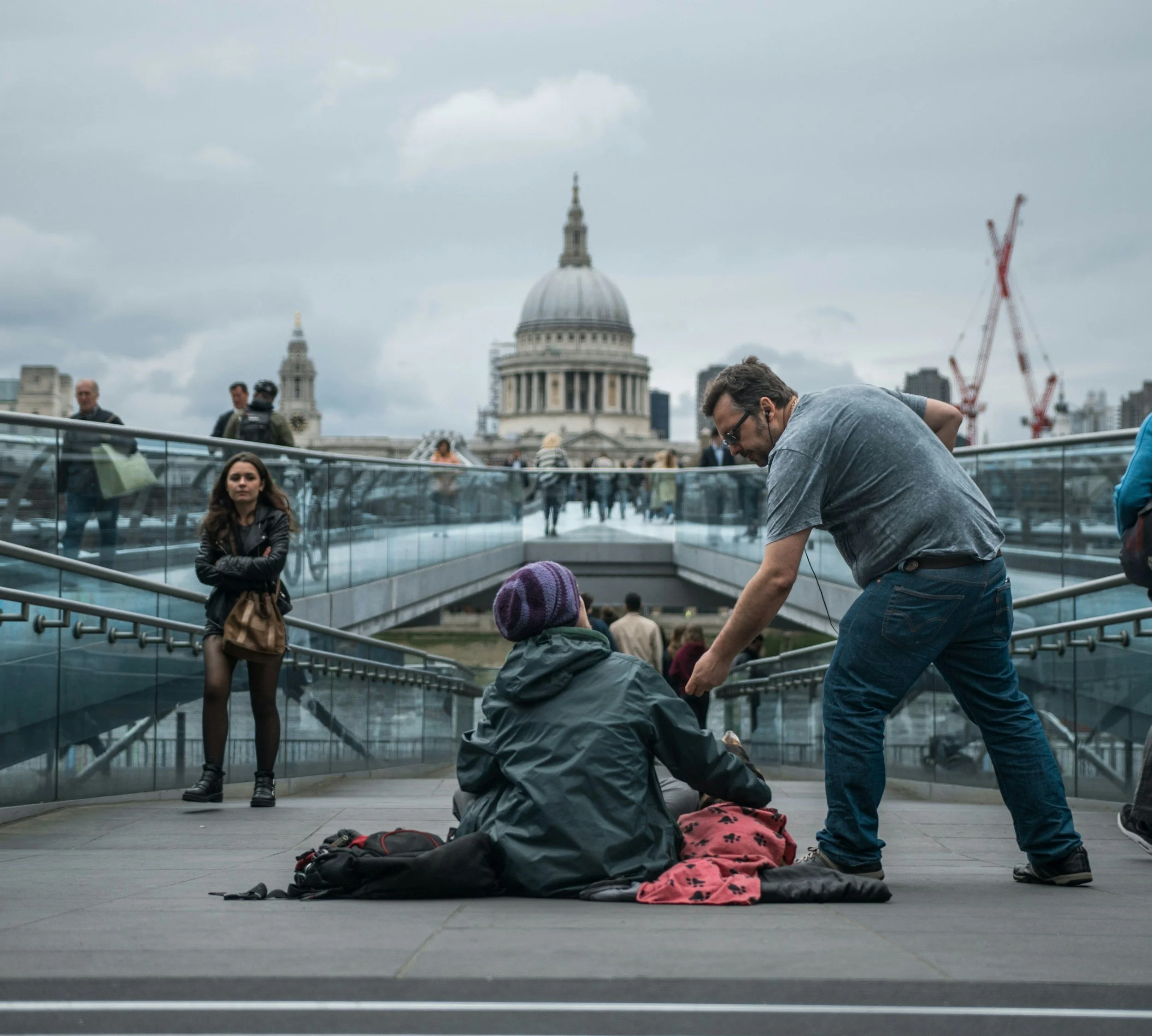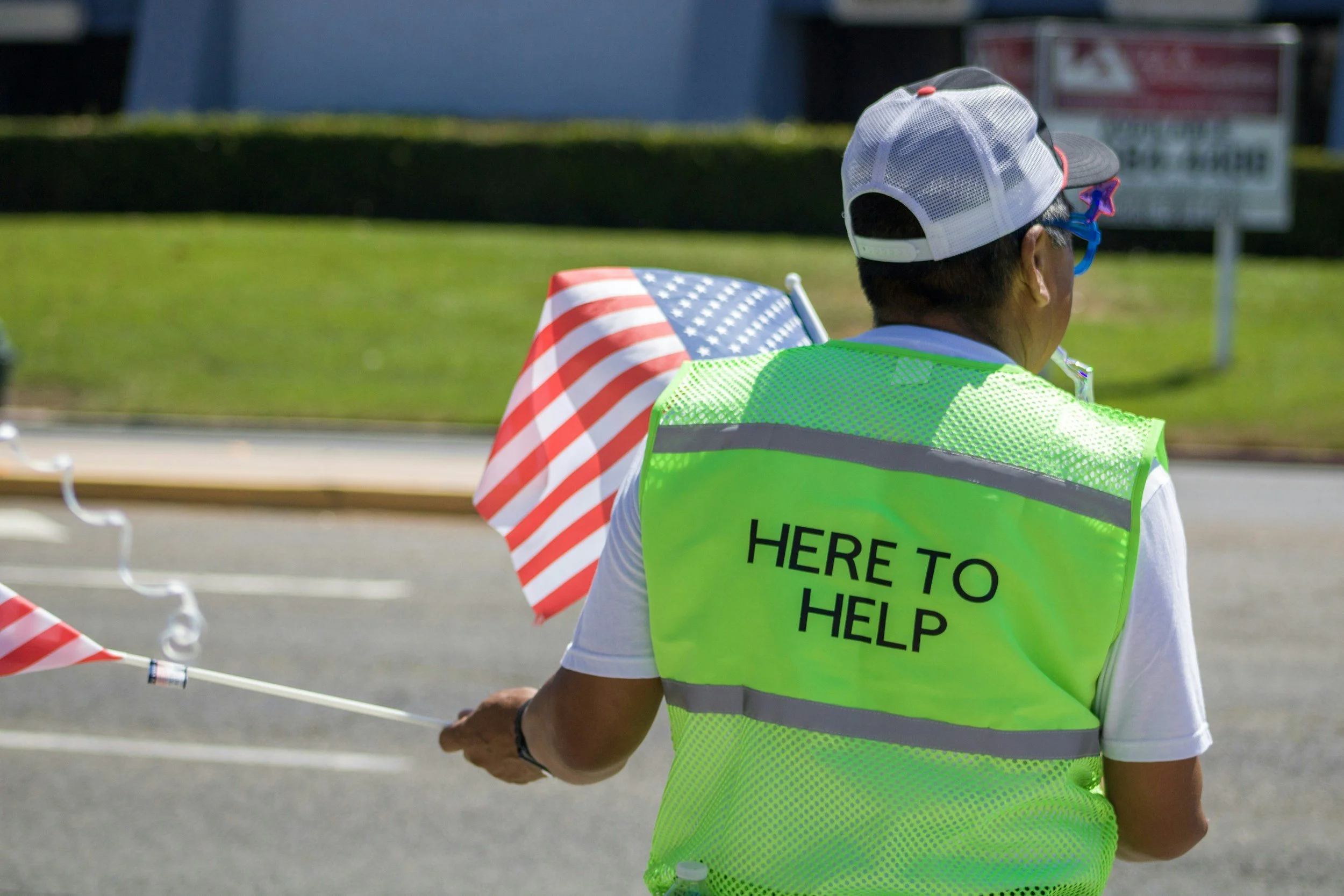Basic Human Decency
“God’s most lordly gift to man is decency of mind.” - Aeschylus
“Basic human decency.” It almost sounds old-fashioned these days—evoking images of fire-and-brimstone sermons and self-righteous church ladies. But at its core, it’s a simple, enduring idea: the fundamental standard of civility, respect, and kindness expected in any society.
It’s about treating others with fairness, empathy, and consideration—even when we disagree, even when situations are challenging. Decency is the foundation of trust and cooperation, both of which are essential for a thriving society.
Most of us were raised to value these principles. We were taught to be polite, courteous, honest, and respectful. The phrase “There but for the grace of God go I” echoed in households of every background, reminding us to show compassion toward those who are struggling.
But let’s face it—decency has been eroding for years, while cruelty and outrage have become disturbingly normalized. Public figures hurl personal attacks. Everyday drivers explode in road rage. Customers rush to leave scathing reviews over minor inconveniences, without giving businesses a chance to make things right. These moments may seem small in isolation, but together they reveal a troubling cultural shift: one moving away from decency and toward reactive hostility.
And now, with recent events unfolding in Los Angeles and across the country, it feels as though basic human decency is vanishing before our eyes.
Reports have emerged of immigration officers stationed outside elementary schools, dressed in tactical gear, waiting as parents drop off their children. Instead of heading to work, these parents are detained—rounded up and taken away in front of their kids. We’ve seen heartbreaking images of toddlers and pregnant women, not dangerous criminals, with hands zip-tied behind their backs.
I don’t care what side of the political aisle you’re on—this is not about politics. This is about humanity. If these scenes don’t stir something deep inside you—if they don’t move you emotionally—then something vital has been lost.
I’m not here to debate the complexities of immigration policy. We all know that we need better, more humane solutions. Still, I’ve heard people justify these scenes with statements like, “If they’re here illegally, then they deserve to be deported.”
Maybe so—but not like this.
There is no valid argument for cruel, dehumanizing treatment of people—especially innocent children and hard-working parents with no criminal records, harming no one. This is not justice. It’s trauma.
Friends and neighbors, especially people of color, are living in real, tangible fear. They think twice before going to the store or walking their kids to school. This is modern-day America. What have we become?
Decency: Not Dead Yet
The good news? Decency isn’t dead. It may be on life support—but we can revive it. And we must.
Many of us were taught that manners matter—and they still do. Decency and manners go hand in hand. Almost every child learns the Golden Rule early on:
“Do unto others as you would have them do unto you.”
Why It Matters
When we treat one another with kindness and respect—not just in grand gestures, but in consistent, everyday acts—good things happen. Those small choices accumulate. They create a decent world worth living in.
I believe most people are naturally inclined toward decency. It’s a quality we can nurture through awareness, intention, and daily practice.
We can start with the basics—simple, human acts of kindness and respect:
Saying please and thank you
Holding doors open
Greeting people warmly
Helping someone cross the street
Offering food to someone in need
Decency also shows up in courageous ways. We see it in people who stand up for others who are excluded, mocked, or bullied. In those who peacefully protest injustice. In strangers who form human chains to protect their neighbors.
These are all acts of human decency.
Teaching the Next Generation
It’s crucial that we teach our kids to value decency—and to never accept cruelty or callousness as normal.
There are countless ways to be decent human beings. We can:
Choose words that uplift rather than harm
Treat others equally, regardless of status, background, or beliefs
Speak up when we witness injustice, even if it’s uncomfortable
Offer help without expecting recognition
Take care of shared spaces and clean up after ourselves
Ultimately, it’s about how we choose to see one another. If we shift our mindset—from judgment to empathy, from division to connection—we can help build a more compassionate culture.
“When the norm is decency, other virtues can thrive; integrity, honesty, compassion, kindness, and trust.” – Raja Krishnamoorthi
A Final Thought
We are undeniably at a crossroads in human history. The choice is clear: right or wrong. Each of us must decide what side of human decency we want to stand on.
Will we choose to be kind, compassionate, and caring? Or mean, cruel, and indifferent?
We can allow ourselves to be misled by toxic narratives, or we can stay grounded in the decency we were raised with—the decency in our hearts. Our choices shape not only our lives, but the world we live in.
Remember, decency isn’t about grand statements. It’s about the small, everyday choices that build trust, foster peace, and make life more humane for everyone.
Let’s make a conscious effort to treat one another with kindness. Let’s remember that there’s a human being on the other side of every interaction.
And maybe—just maybe—that’s where real change begins.
And just for fun….because I always need to leave you with a smile, this polite little fellow reminds us that manners matter.
Stay positive my friends!
With love and laughter,
Annie @The Positive People Project. 🌞




